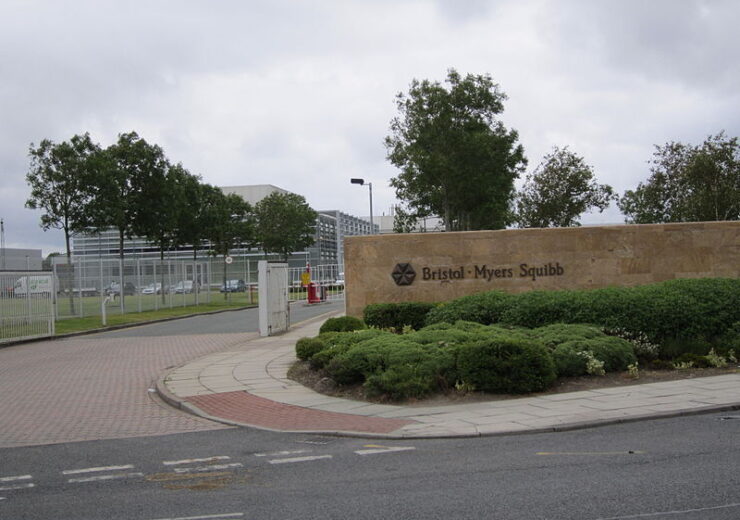BBP-398 is an inhibitor of SHP2 and was founded through a partnership with the Therapeutics Discovery division of The University of Texas MD Anderson Cancer Center, US

Bristol-Myers Squibb facility in Wirral, England. (Credit: Rept0n1x/Wikipedia.)
BridgeBio Pharma has signed an exclusive licence deal with Bristol Myers Squibb (BMS) to develop and market BridgeBio’s BBP-398 in oncology.
BBP-398, an inhibitor of SHP2, was founded through a partnership with the Therapeutics Discovery division of The University of Texas MD Anderson Cancer Center, US. At present, it is being developed to treat hard-to-treat cancers.
Under the agreement, BridgeBio is eligible to receive $90m in upfront payment from BMS.
Additionally, BridgeBio will receive up to $815m upon meeting development, regulatory and sales milestones as well as tiered royalty payments.
BridgeBio will hold an option to acquire higher royalties in the US for financing a portion of development expenditures upon commencing the registrational clinical studies.
The firm will also continue to advance its Phase I monotherapy and combination therapy trials that are currently in progress.
Under the agreement, BMS will lead and fund all other development and commercial works.
BMS research and early development executive vice-president Rupert Vessey said: “We have seen the potential role SHP2 inhibition could play in unlocking possible combination therapies to treat patients suffering from a range of cancers.
“We are hopeful this collaboration with BridgeBio will help us maximise the possibilities SHP2 inhibition with BBP-398 will hold for patients.”
Both companies entered into a non-exclusive, co-funded clinical partnership in July 2021 to evaluate BBP-398 plus Opdivo (nivolumab) in advanced solid tumour patients with KRAS mutations.
Currently, BridgeBio is progressing the Phase I trial in solid tumour patients with mutations in the MAPK signalling pathway.
In February last year, BMS started construction on its new cell therapy manufacturing facility in Massachusetts, US.
The facility will support the clinical and commercial manufacturing of cell therapies for patients with aggressive haematological cancers.
